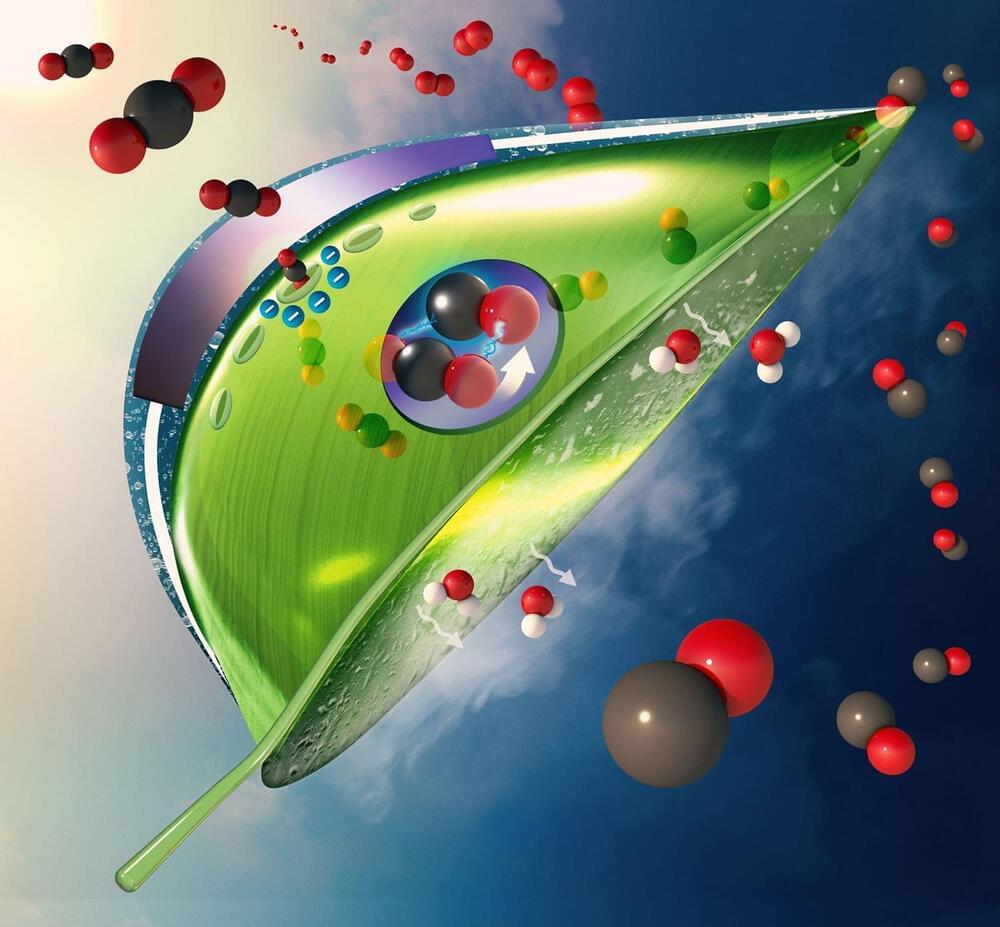The American Farm Bureau Federation has recognized Chad and Ben Johnson of Nebraska for designing a robot called “Grain Weevil” to lower maintenance and make grain bins safer.
Blood plasma, cellular reprogramming, endogenous.
You may have heard a lot of talk recently about cellular reprogramming, rejuvenation or even “rejuvenation programming”, but what does that all mean and what are the 3 main strategies that several researchers and companies (maybe Altos Labs) will be further investigating?
Well i discuss in this video.
Find me on Twitter — https://twitter.com/EleanorSheekey.
Support the channel.
In January 1999, scientists observed mysterious motions within a solar flare.
Unlike typical flares that showed bright energy erupting outwards from the Sun, this solar flare also displayed a downward flow of motion, as if material was falling back towards the Sun. Described as “downward-moving dark voids,” astronomers wondered what exactly they were seeing.
Boom expects to break ground this year on a 400,000-sq-ft Overture production plant and begin manufacturing of the supersonic airliner in 2024.
A team of engineers at the University of Illinois Chicago has built a cost-effective artificial leaf that can capture carbon dioxide at 100 times better than current technologies.
This novel artificial leaf works in the real world, unlike other carbon capture systems that could only work with carbon dioxide from pressurized tanks. It captures carbon dioxide from more dilutes sources, like air and flue gas produced by coal-fired power plants, and releases it for use as fuel and other materials.
“Our artificial leaf system can be deployed outside the lab, where it has the potential to play a significant role in reducing greenhouse gases in the atmosphere thanks to its high rate of carbon capture, relatively low cost, and moderate energy, even when compared to the best lab-based systems,” said Meenesh Singh, assistant professor of chemical engineering in the UIC College of Engineering and corresponding author on the paper.
New videos DAILY: https://bigth.ink/youtube.
Join Big Think Edge for exclusive videos: https://bigth.ink/Edge.
ABOUT BIG THINK:
Smarter Faster™
Big Think is the leading source of expert-driven, actionable, educational content — with thousands of videos, featuring experts ranging from Bill Clinton to Bill Nye, we help you get smarter, faster. Subscribe to learn from top minds like these daily. Get actionable lessons from the world’s greatest thinkers & doers. Our experts are either disrupting or leading their respective fields. We aim to help you explore the big ideas and core skills that define knowledge in the 21st century, so you can apply them to the questions and challenges in your own life.
Other Frequent contributors include Michio Kaku & Neil DeGrasse Tyson.
Michio Kaku Playlist: https://bigth.ink/kaku.
Bill Nye Playlist: https://bigth.ink/BillNye.
Neil DeGrasse Tyson Playlist: https://bigth.ink/deGrasseTyson.
Join Big Think Edge, to gain access to a world-class learning platform focused on building the soft skills essential to 21st century success. It features insight from many of the most celebrated and intelligent individuals in the world today. Topics on the platform are focused on: emotional intelligence, digital fluency, health and wellness, critical thinking, creativity, communication, career development, lifelong learning, management, problem solving & self-motivation.
Watch the newest video from Big Think: https://bigth.ink/NewVideo.
Join Big Think Edge for exclusive videos: https://bigth.ink/Edge.
ABOUT BIG THINK:
Smarter Faster™
Big Think is the leading source of expert-driven, actionable, educational content — with thousands of videos, featuring experts ranging from Bill Clinton to Bill Nye, we help you get smarter, faster. Subscribe to learn from top minds like these daily. Get actionable lessons from the world’s greatest thinkers & doers. Our experts are either disrupting or leading their respective fields. We aim to help you explore the big ideas and core skills that define knowledge in the 21st century, so you can apply them to the questions and challenges in your own life.
Other Frequent contributors include Michio Kaku & Neil DeGrasse Tyson.
Michio Kaku Playlist: https://bigth.ink/kaku.
Bill Nye Playlist: https://bigth.ink/BillNye.
Neil DeGrasse Tyson Playlist: https://bigth.ink/deGrasseTyson.
Join Big Think Edge, to gain access to a world-class learning platform focused on building the soft skills essential to 21st century success. It features insight from many of the most celebrated and intelligent individuals in the world today. Topics on the platform are focused on: emotional intelligence, digital fluency, health and wellness, critical thinking, creativity, communication, career development, lifelong learning, management, problem solving & self-motivation.
This is a talk by Ray Kurzweil for course 6.S099: Artificial General Intelligence. For this entire recording, Ray did not use slides, so the video does not show any slides. This class is free and open to everyone. Our goal is to take an engineering approach to exploring possible paths toward building human-level intelligence for a better world.
INFO:
Course website: https://agi.mit.edu.
AI podcast: https://lexfridman.com/ai.
CONNECT:
- If you enjoyed this video, please subscribe to this channel.
- AI Podcast: https://lexfridman.com/ai/
- Show your support: https://www.patreon.com/lexfridman.
- LinkedIn: https://www.linkedin.com/in/lexfridman.
- Twitter: https://twitter.com/lexfridman.
- Facebook: https://www.facebook.com/lexfridman.
- Instagram: https://www.instagram.com/lexfridman
How can architects design for the inevitable suburban sprawl that comes with our rapidly growing cities?
Astronomers use fast radio bursts for the first time to measure the Hubble constant in hopes of ending the debate on the universe’s expansion rate.









